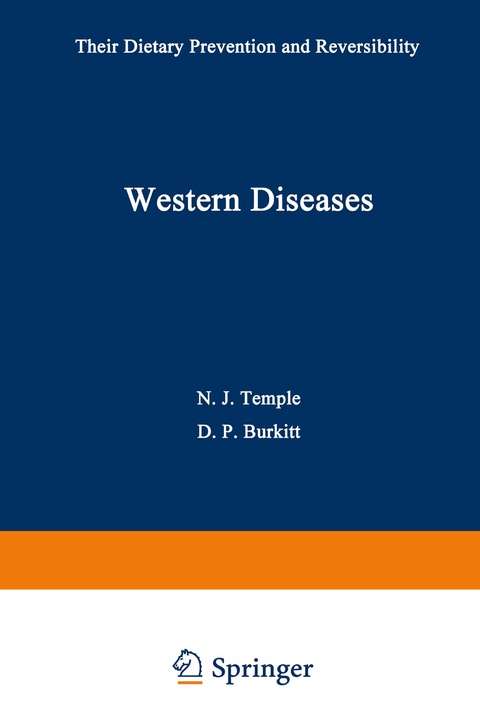
Western Diseases
Humana Press Inc. (Verlag)
978-1-4684-8138-9 (ISBN)
I. Diseases Characteristic of Modern Western Culture.- The Emergence of a Concept.- Western Diseases and What They Encompass.- II. The Causes of Western Disease.- Diet-Related Disease Patterns in South African Interethnic Populations: Epidemiological Perplexities and Future Prospects.- Diet and Chronic Degenerative Diseases: A Summary of Results from an Ecologic Study in Rural China.- The Dietary Causes of Degenerative Diseases: Nutrients us Foods.- Diet and Western Disease: Fat, Energy, and Cancer.- Dietary Fiber.- Vitamins and Minerals in Cancer, Hypertension, and Other Diseases.- III. The Possibility of Disease Reversibility.- Reversing Coronary Heart Disease.- The Reversibility of Obesity, Diabetes, Hyperlipidemia, and Coronary Heart Disease.- The Therapeutic and Preventive Potential of the Hunter-Gatherer Lifestyle: Insights from Australian Aborigines.- IV. Practical Means to Prevent Western Disease.- Organized Medicine: An Ounce of Prevention or a Pound of Cure.- Changes for Health.- V. Medical Research.- Medical Research: A Complex Problem.- Western Disease: End of the Beginning.
...highly readable and even entertaining...provide(s) much useful and insightful information on the role of diet in human health and disease. - New England Journal of Medicine
| Zusatzinfo | 472 p. |
|---|---|
| Verlagsort | Totowa, NJ |
| Sprache | englisch |
| Maße | 152 x 229 mm |
| Themenwelt | Sachbuch/Ratgeber ► Gesundheit / Leben / Psychologie ► Ernährung / Diät / Fasten |
| Medizin / Pharmazie ► Gesundheitsfachberufe ► Diätassistenz / Ernährungsberatung | |
| Studium ► 2. Studienabschnitt (Klinik) ► Rechtsmedizin | |
| Naturwissenschaften ► Biologie ► Biochemie | |
| ISBN-10 | 1-4684-8138-X / 146848138X |
| ISBN-13 | 978-1-4684-8138-9 / 9781468481389 |
| Zustand | Neuware |
| Haben Sie eine Frage zum Produkt? |
aus dem Bereich


